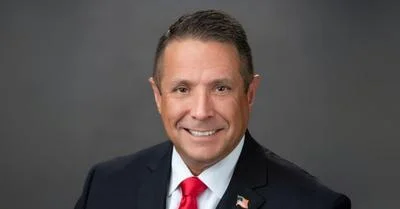Florida is taking action on occupational licensing reform for a range of professions, including hairdressers. | Wikipedia
Florida is taking action on occupational licensing reform for a range of professions, including hairdressers. | Wikipedia
When it comes to occupational licensing reform, Florida is setting the pace, after adopting the Occupational Freedom and Opportunity Act last year and additional reforms this year.
The measure was signed into law last summer by Gov. Ron DeSantis. The law cut regulations, including fees, on more than 440,000 people working as real estate agents, barbers, hairdressers, interior designers and other professions, according to a May 3 story by The Center Square.
Reforms continued this year with House Bill 735, which makes it easier to work without a license, and precludes communities from regulating journeyman positions, according to an April 6 story in The Center Square. State Sen. Keith Perry (R-Gainesville), who sponsored the senate version of the legislation, said it was meant to keep local governments from adding fees and additional costs for professionals in the trades just looking to make money.
“This is for the little guy that can’t do that, can’t get licenses and everything, maybe wants a side job, maybe wants to have a little business and have their son and daughter work in their business and learn how to run a small little side-job business,” he told The Center Square.
Justin Pearson, who is the managing attorney in the Florida office of the Virginia-based Institute for Justice, told The Center Square that after last year’s legislation was adopted, some municipalities found a way around the new law by imposing local occupational licenses and fees on some of the occupations covered in last year’s state law. He also added that affluent communities saw it as a way to limit competition from less affluent areas.
“It is going to be great for Floridians of modest means,” he said, adding that the focus on HB 735 was on “local occupation licenses, which make even less sense than state licensing: an occupation that is safe in one town doesn’t become dangerous when it enters another town.”
In a guest editorial in the Florida Times-Union, State Rep. Joe Harding (R-Willison), wrote that the reforms help to position the Sunshine State for continued economic recovery in the wake of the COVID-19 pandemic.
“The regulatory relief was a godsend for would-be entrepreneurs eager to apply their skills to provide a service, grow the economy, and perhaps one day hire workers,” Harding wrote in the editorial. “It was arguably the most significant occupational licensing reform ever enacted in any state.”
The reforms may have been long overdue, according to The Reason Foundation, which noted recently that prior to the reforms kicked off last year, the Sunshine State’s occupational licensing requirements were among the most burdensome in the country.
Moreover, a study by the Institute for Justice estimated the state’s restrictive laws cost more than 129,000 jobs and as much as $460 million each year, The Reason Foundation reported.
The deregulation also may make it easier for Floridians to seek employment. The Sunshine Sentinel reported that earlier this year, DeSantis made Florida one of 26 states to end the federal unemployment assistance program before those benefits were set to expire in September, citing a Fox 13 News report.



 Alerts Sign-up
Alerts Sign-up